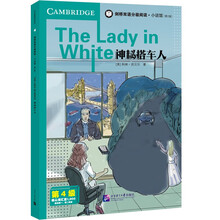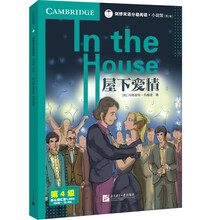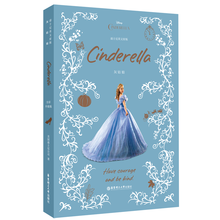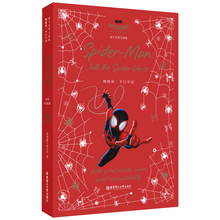










《我见过你哭:西方经典温情诗》(双语诗歌·彩绘典藏系列)是送给尘世中疲惫心灵的佳礼。在喧闹、生活步调不断加快的现代社会中,若能静下心来读一首优美的诗,寻求内心的一点点平静感,那该是多么怡人的一件事。
*彩绘典藏——当很美的诗句与很美的画作相遇,一个梦幻的国度跃然纸上。
精选英国设计大师威廉-莫里斯的设计作品,以自然为题材,营造出典雅的艺术氛围,使书籍散发出优雅的自然主义气质。精选世界知名绘画大师的优美画作,画面风格多样:清新细腻、简洁朴素、空灵抽象,让你在捧书阅读时,感受到诗歌与艺术之和谐美。甄选优质纸张,全彩印刷,保证高品质色彩及纸张质感。
*名家名译——著名翻译家传世译笔,缔结出一部广受认可、源远流长的译作。
双语诗歌-彩绘典藏系列汇集了东西方诗歌巨匠的经典作品,加以国内著名翻译家冰心、屠岸、王佐良、杨德豫、查良铮、郑振铎等先生的传世译作,版本精良,经得住时间的考验。
*全文朗诵——专业朗诵者倾情演绎,奉献出一场视觉与听觉交汇的盛筵。
《我见过你哭:西方经典温情诗》是双语诗歌·彩绘典藏系列中的一本,收录了著名诗人济慈、雪莱、华兹华斯、彭斯、拜伦等的经典诗作。诗句有的情感喷薄欲出,有的语言清新意味隽永,有的将抒情和哲思完美结合,给人以无尽美感和启迪。双语诗歌·彩绘典藏系列均为中英对照,方便对照阅读。除了优美的诗句之外,还增加了大量彩色精美配图,均是世界绘画大师的华美画作,精美排版,全彩印刷,且所配的MP3朗诵音频也由专业人员进行朗读,大大提升了阅读体验!“双语诗歌·彩绘典藏版”系列不仅适合中高英语学习者的双语读物,更是诗歌爱好者们的收藏佳品。
相关视频请点击:
我见过你哭
I Saw Thee weep
给我的弟弟乔治
To My Brother George
蝈蝈和蟋蟀
On the Grasshopper and Cricket
给G. A. W.
To Georgiana Augusta Wylie
“亮星!但愿我像你一样坚持”
“Bright star! Would I were steadfast as thou art”
仙子的歌
Faery Song
致拜伦
To Lord Byron
写于李·亨特先生出狱之日
Written on the Day That Mr. Leigh Hunt Left Prison
给一位赠我以玫瑰的朋友
To a Friend Who Sent Me Some Roses
接受李·亨特递过来的桂冠
On Receiving a Laurel Crown from Leigh Hunt
一清早送别友人们
On Leaving Some Friends at an Early Hour
致海登(一)
Addressed to Haydon
致海登(二)
Addressed to the Same [‘Great Spirits’]
献诗——呈李·亨特先生
To Leigh Hunt, Esq.
致斯宾塞
Sonnet to Spenser
“音乐,当柔婉的歌声消亡”
“Music, when soft voices die”
54号十四行诗
Sonnet 54
18号十四行诗
Sonnet 18
宝贝羊羔
The Pet-lamb
永生的信息
Ode: Intimations of Immortality from Recollections of Early Childhood
无题
[Untitled]
我的心灵一度休眠
“A slumber did my spirit seal”
瀑布和野蔷薇
The Waterfall and the Eglantine
赠一位年届七旬的女士
To—, in Her Seventieth Year
捉迷藏
Blind-Man’s Buff
青青苇子草
Green Grow the Rashes
往昔的时光
Auld Lang Syne
致拉布雷克书 写给一位苏格兰老诗人——1785年4月1日
Epistle to J. Lapraik An Old Scottish Bard. —April 1, 1785
赶羊上山(一)
Ca’ the Yowes to the Knowes
赶羊上山(二)
Ca’ the Yowes to the Knowes (Second Set)
亚顿河水
Sweet Afton
去吧,去吧
Away, Away
我见过你哭
I Saw Thee Weep
写给奥古丝达
Stanzas to Augusta
墓畔哀歌
Elegy Written in a Country Churchyard
我的心啊在高原
My Heart’s in the Highlands
约翰·安得森
John Anderson, My Jo
孩子们
Children
扫烟囱孩子(一)
The Chimney Sweeper (1)
扫烟囱孩子(二)
The Chimney Sweeper (2)
写给小鼠
To a Mouse On turning her up in her nest with the plough, November, 1785
“我在陌生人中孤独旅行”
“I traveled among unknown men”
在学童中间
Among School Children
“噢,我的好性子的妈妈!”
“Waken me early tomorrow”
在我阅读这些诗歌时,我被深深地感动了,在过去的二十多年中,我不记得曾经读过能与之媲美的抒情诗歌。它们曾经给予我数小时的欢乐时光,恍惚之中,我似乎正在饮着一股清凉而甜美的泉水……
——瑞典诗人、诺贝尔文学奖获得者 维尔纳·冯·海登斯坦